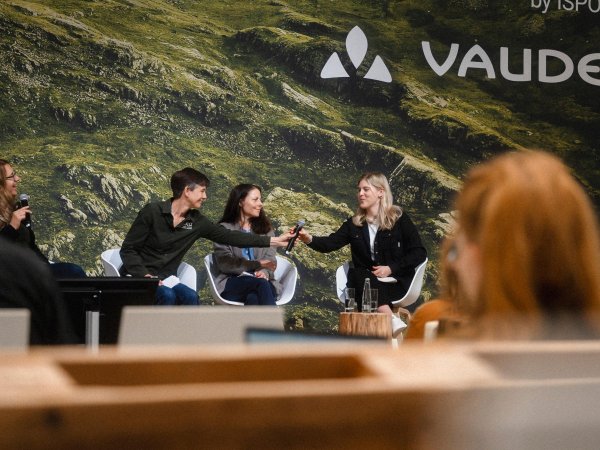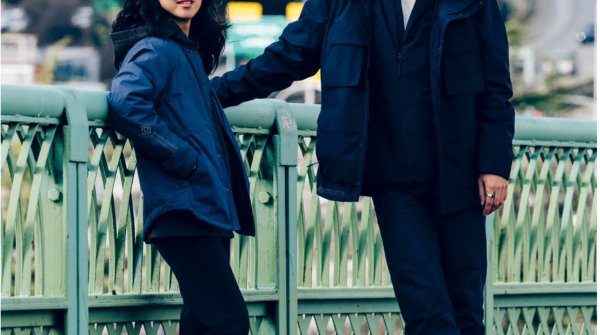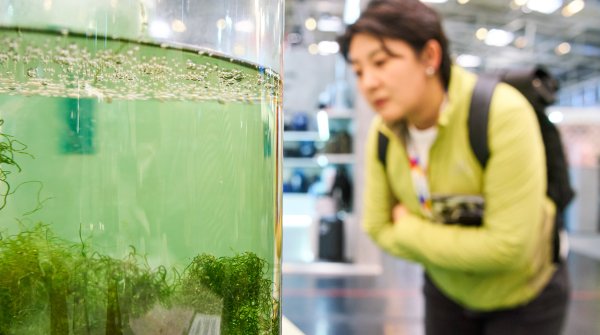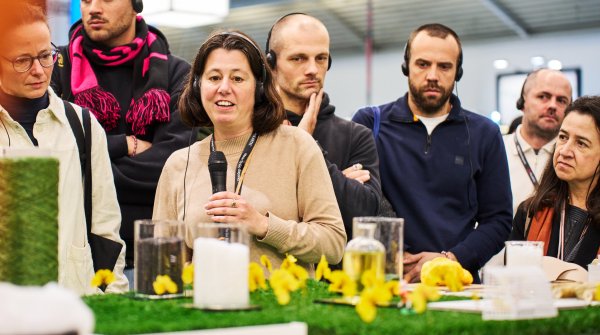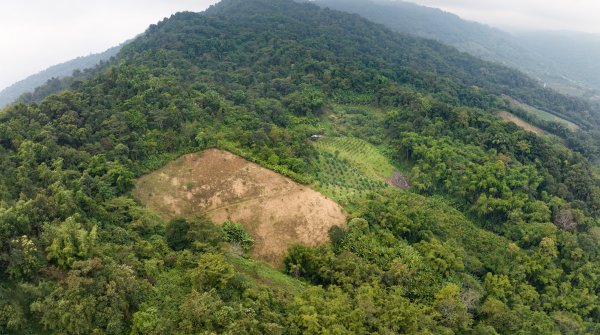Species are dying out, natural habitats are shrinking and the ecological balance is being shaken - caused by pollution, climate change, deforestation and overuse of natural resources. This is nothing new, it is a problem that industry and people are becoming increasingly aware of. This topic was emphasized once again at OutDoor 2024. "We are all interdependent. Environment, animals, people," said Mackenzie Muir, Market Relationship Manager European Market at The New Zealand Merino Company, addressing one of the most important topics in the outdoor industry: Biodiversity.
If biodiversity is impaired, this can have serious consequences for the entire ecosystem. Species extinction means a loss of genetic diversity and our health and quality of life also decline. The decline in biodiversity also means the loss of food sources, medicinal resources and natural raw materials.
The role of the outdoor industry in particular is paradoxical here: as much as outdoor fans and the outdoor industry enjoy and benefit from nature with its biodiversity, it is also the outdoor industry that has a high share in the destruction. "More than a third of textiles are made from natural resources," explained Anna Rodewald from GreenRoom Voice.
The experts therefore all agree that the outdoor industry must take action. "There is something for everyone to do," emphasized Rodewald. And Tanya Bascombe Joint, General Manager of EOCA, called for: "Start, just start!"
"Let's protect our homeland together." With these words, Michaela Kaniber, Bavarian Minister of State for Food, Agriculture, Forestry and Tourism, presented the "Respektiere deine Grenzen" (engl.: respect your boundaries) project in the panel talk "Freizeitlust - Naturfrust?". The aim is to encourage people to treat nature with respect and protect sensitive habitats. The loss of biodiversity often also means the disappearance of culturally and ecologically valuable landscapes that are important for recreation and tourism.
The Minister wants to counteract this, for example with posters. Signage and markings are used to identify areas that are particularly worthy of protection to ensure that hikers and other outdoor enthusiasts avoid these areas or behave in a particularly considerate manner. A key part of the initiative is educating the public about the importance of nature conservation and the impact of human activities on the environment. One model region already exists: the Ratzinger Höhe. However, the poster needs to be disseminated and natural areas and agriculture need to be protected nationwide. "Morality ends at the shelf," joked Kaniber on a serious topic: funding. We would demand maximum animal welfare and nature conservation, but as soon as the price comes into play, help is quickly forgotten. So what is it worth to us to protect our nature? Your appeal: Everyone can join in, local authorities, associations, any support is welcome. The poster should become known.
200 projects, 5.6 million euros in donations, 65 different countries. The European Outdoor Conservation Association (EOCA) brings together companies from the outdoor industry to support conservation projects worldwide. "Our world is our garden," Tanya Bascombe, Joint General Manager at EOCA, reminded visitors to OutDoor. Whether it's reforestation, protecting habitats or cleaning up rivers, the projects and environmental initiatives are carefully selected and should have a measurable positive impact on nature in order to preserve and protect it. It was also emphasized how important it is for the outdoor industry in particular to actively participate in nature conservation. Companies that are members of the EOCA, such as Osprey, Patagonia, Mammut and The North Face, are already taking responsibility and making an important contribution to preserving the environment, which is of central importance to their own business. Bascombe: "What wish do we have for our industry?"
"We can restore 3 trillion trees and there is still room for 1.2 trillion more," said Paul Grüneberg from Plant-for-the-Planet during his presentation "Sport for Nature". Plant for the Planet is an international organization that is fully committed to the fight against the climate crisis. Their focus? The renaturation and protection of global forest ecosystems. And this plays a crucial role in the crisis, according to the ambassador for climate justice. Both to combat the climate crisis and to protect biodiversity. The new forests that would be created by planting a trillion new trees could save up to 1012 billion tons of CO2 sequester. In addition, forests are home to 50% of life on this earth.
How does Plant for the Planet approach its vision? With a free platform on which over 275 projects worldwide can be found. But that's not all - they also support research projects, offer free advice and IT tools, invest in environmental education for children and young people and cooperate with politics, business and society to shape a sustainable future. Athletes and the outdoor industry in particular are valuable partners for them. Why? Because they love nature just as much. "We can't do it alone," Grüneberg appeals to the entire outdoor community.
Digitalization and nature conservation, hand in hand. Thorsten Unseld showed how this works during his talk on "How we help users of outdoor products" and presented the "Digitize the Planet" initiative, which is dedicated to the digital mapping of nature conservation areas. The initiative aims to create a comprehensive digital archive that is available to both conservationists and the general public. At the heart of this project is an open data platform on which detailed maps and information about various ecosystems and protected areas are collected and made available.
A central point of the presentation: the digitalization of the leisure sector. Unseld explained that there are numerous challenges for nature conservation here in particular, especially in the area of visitor guidance. As tourists are increasingly obtaining information via digital media, the rules for using nature are often unknown or difficult to access online. This is where "Digitize the Planet" comes in: With its advanced technology, the initiative brings such important information directly to outdoor sports enthusiasts through outdoor apps, for example. This not only helps outdoor fans to enjoy nature more responsibly, but also the outdoor industry. It can make the use of outdoor products more sustainable.
In addition to initiatives presented at the OutDoor stages, there were also numerous projects exhibiting at the Sustainabilty Hub. Visitors were able to discover one of them at Retraced: We want Moor. Only 0.1% of German land is still covered by peatland, compared to the original 5%. Worldwide, 95% of moors have already been destroyed. What does this mean for nature and climate protection? 30% of the earth's carbon is stored in peatlands and if they are destroyed, large amounts of CO₂ escape into the environment. We want Moor wants to counteract this with new technologies to bring "lost moors" back to life. "Moors are climate protectors" - and need all the help they can get!
- ISPO awards
- Mountain sports
- Bike
- Design
- Retail
- Fitness
- Health
- ISPO Job Market
- ISPO Munich
- ISPO Shanghai
- Running
- Brands
- Sustainability
- Olympia
- OutDoor
- Promotion
- Sports Business
- ISPO Textrends
- Triathlon
- Water sports
- Winter sports
- eSports
- SportsTech
- OutDoor by ISPO
- Heroes
- Transformation
- Sport Fashion
- Urban Culture
- Challenges of a CEO
- Trade fairs
- Sports
- Find the Balance
- Product reviews
- Newsletter Exclusive Area
- Magazine
